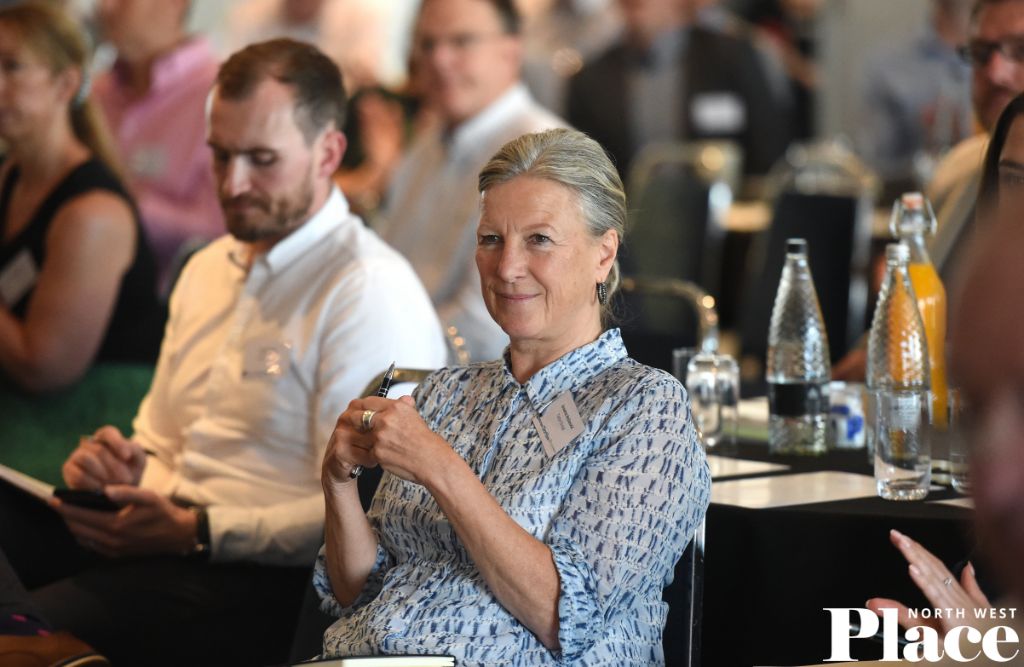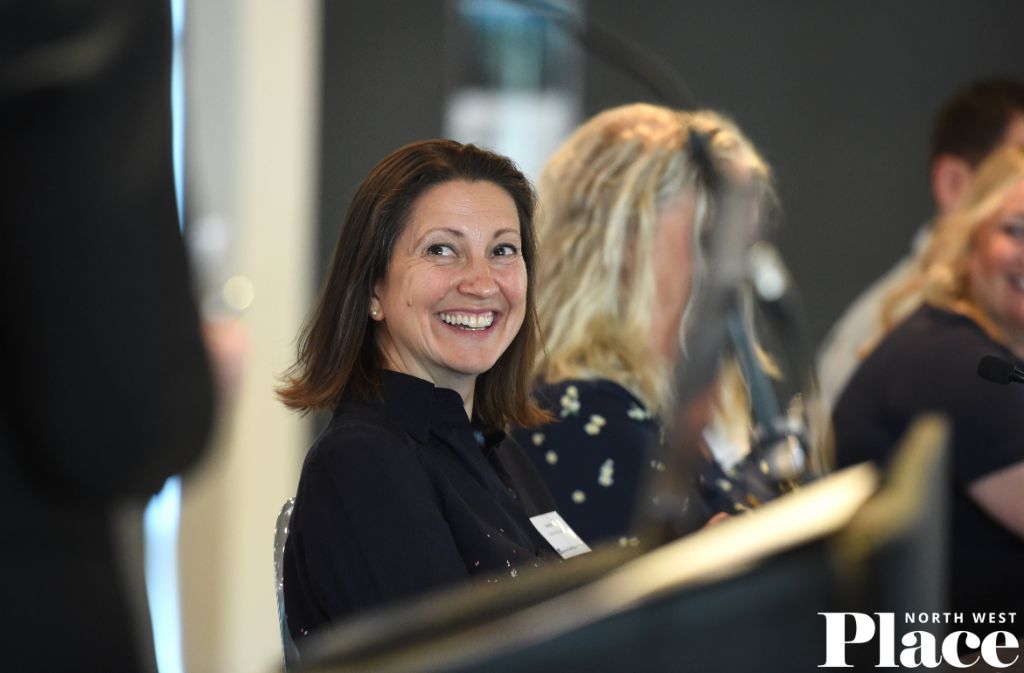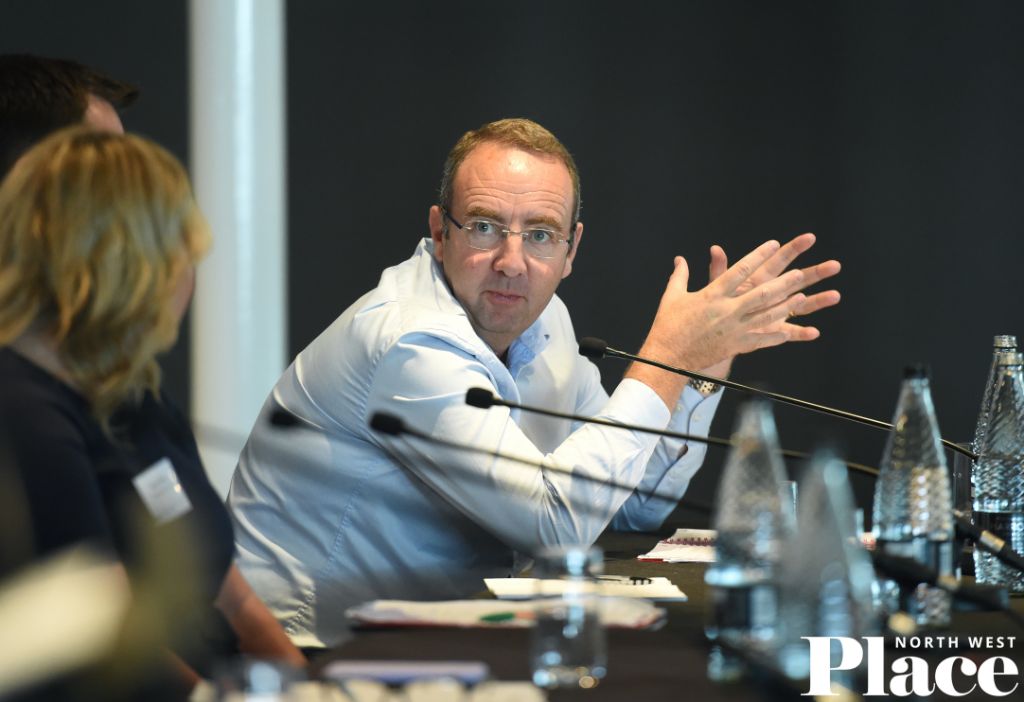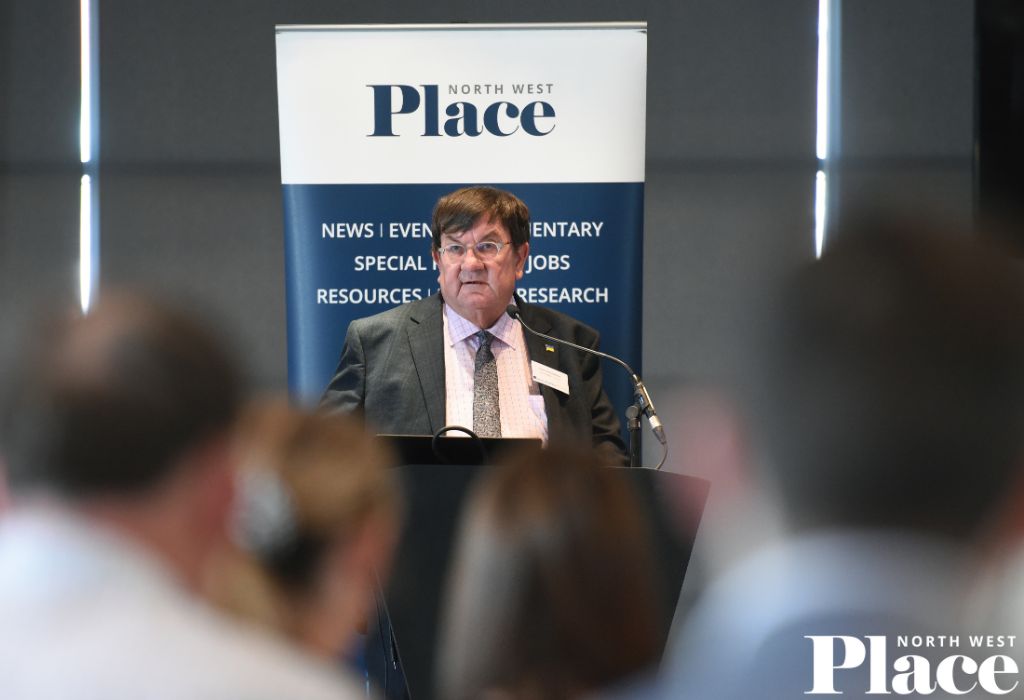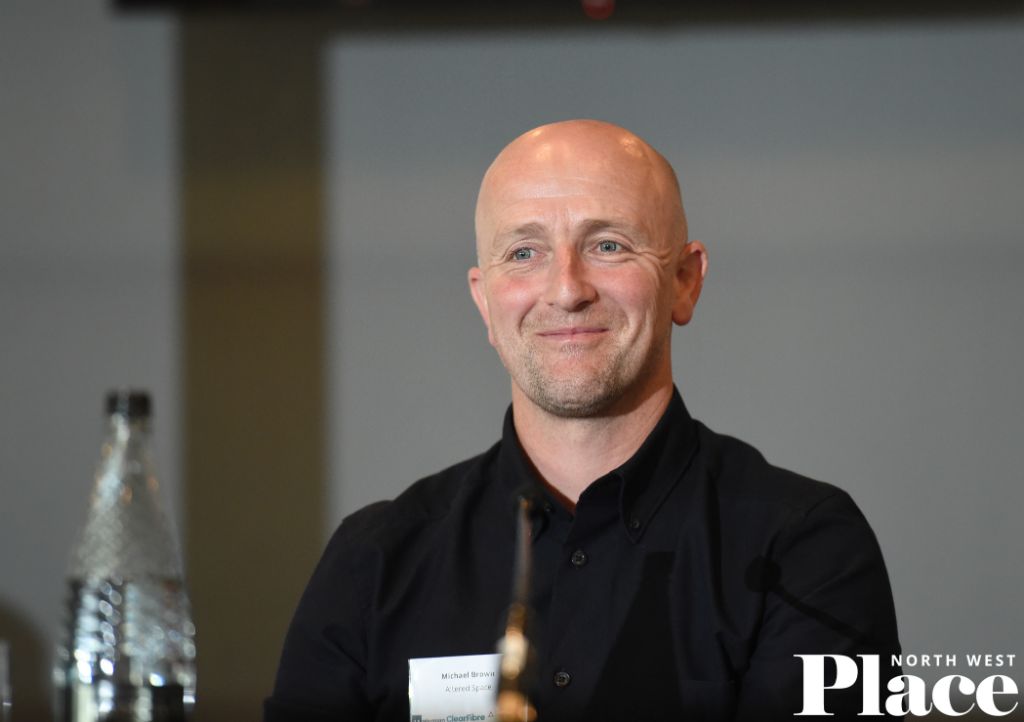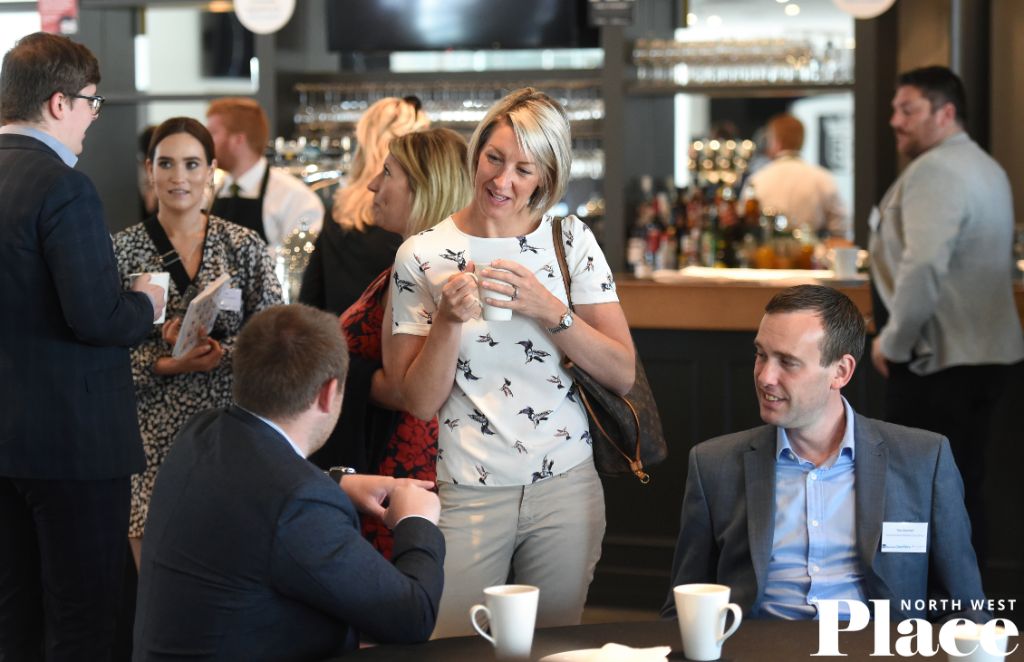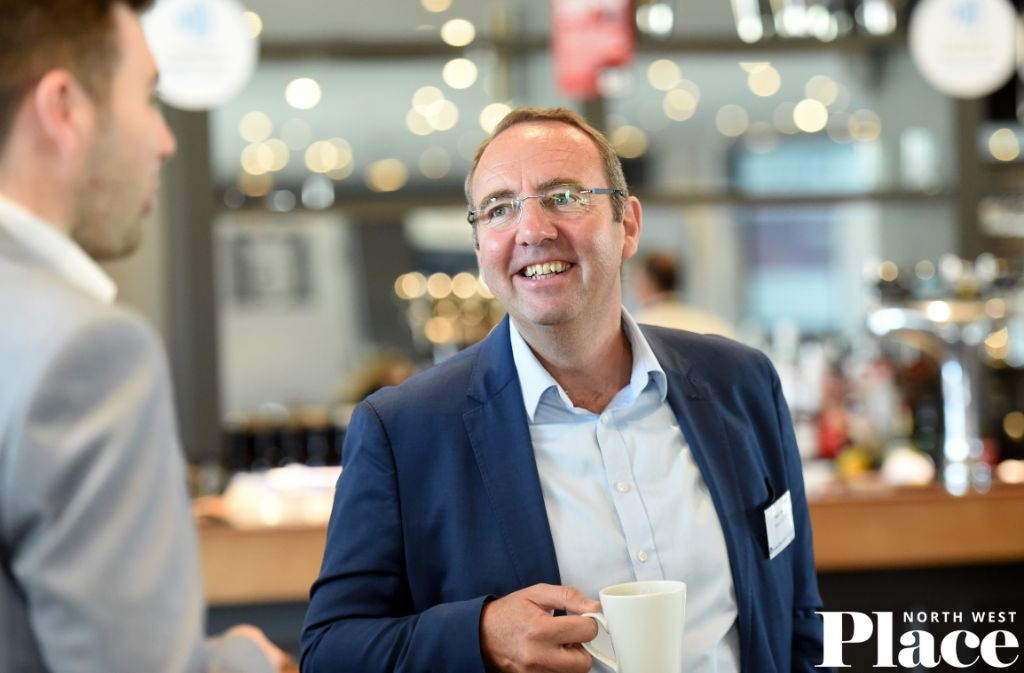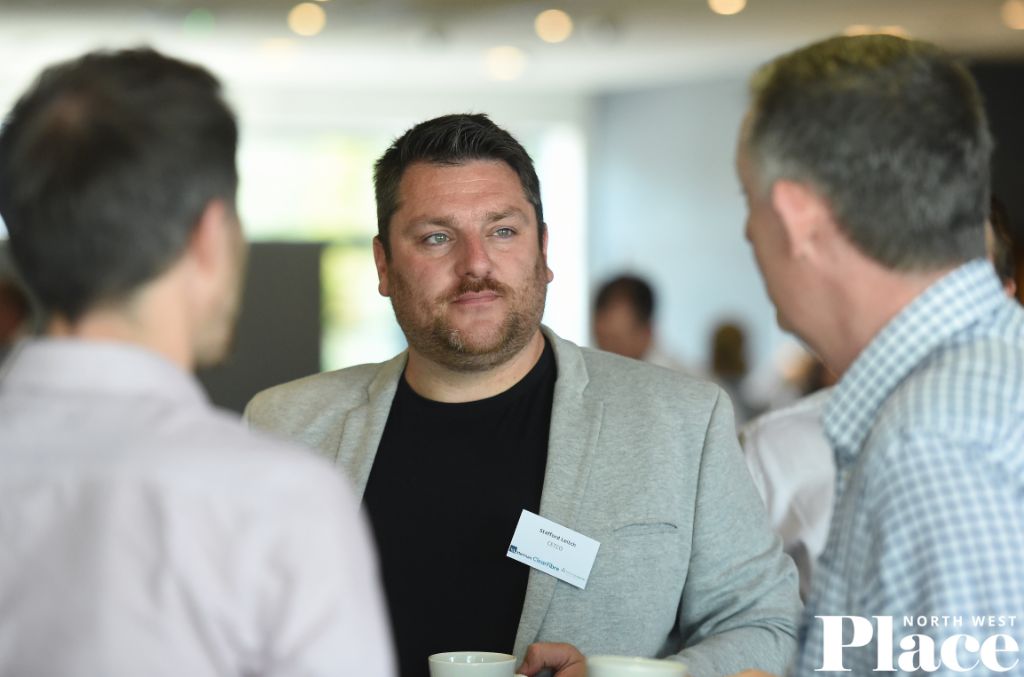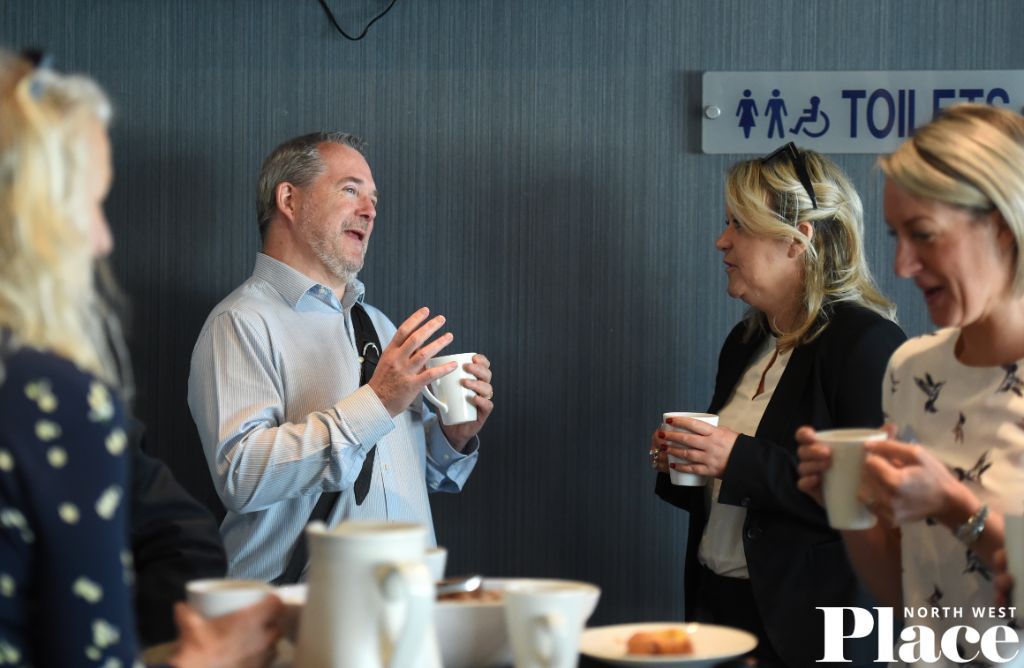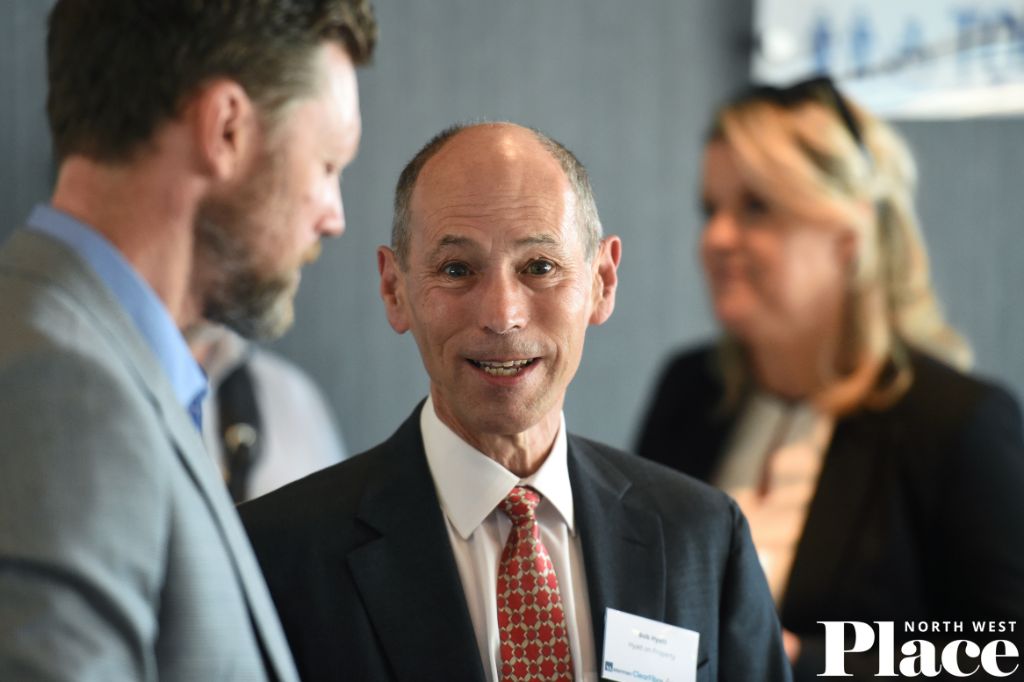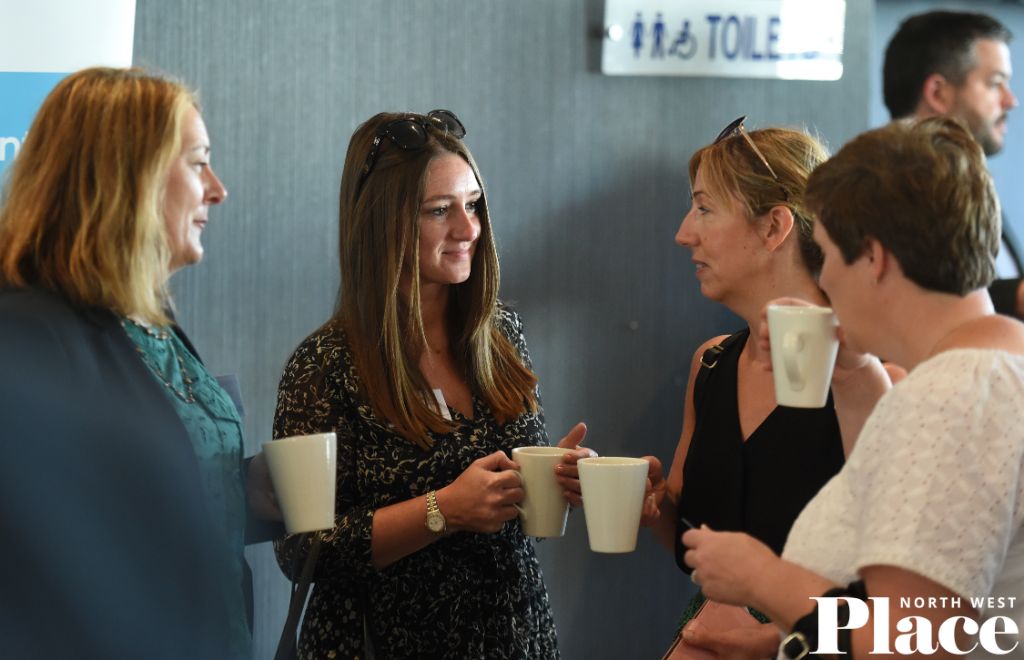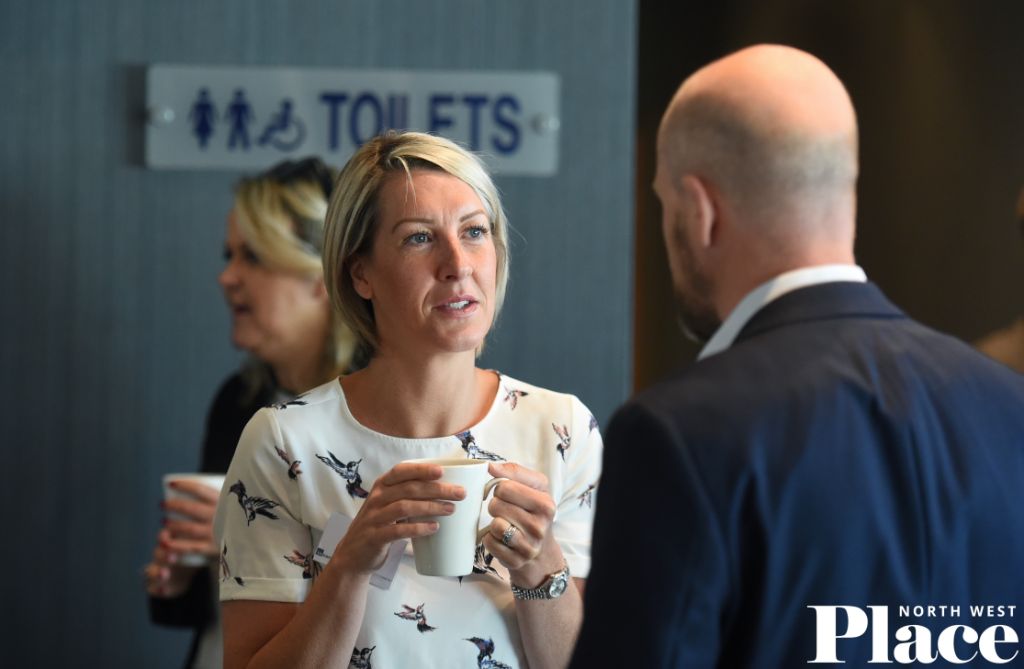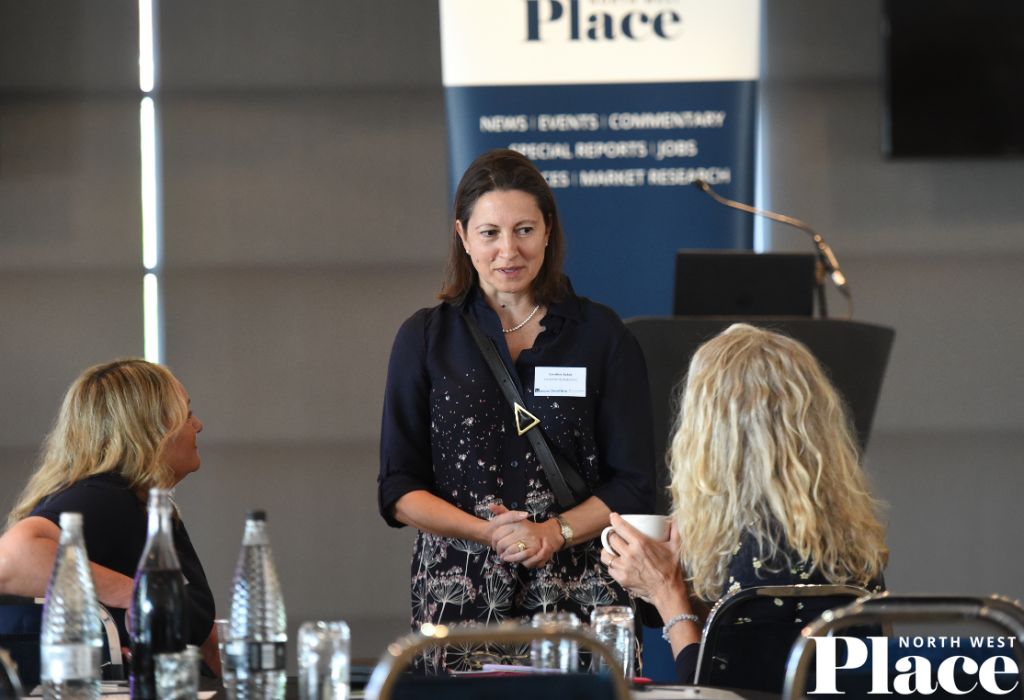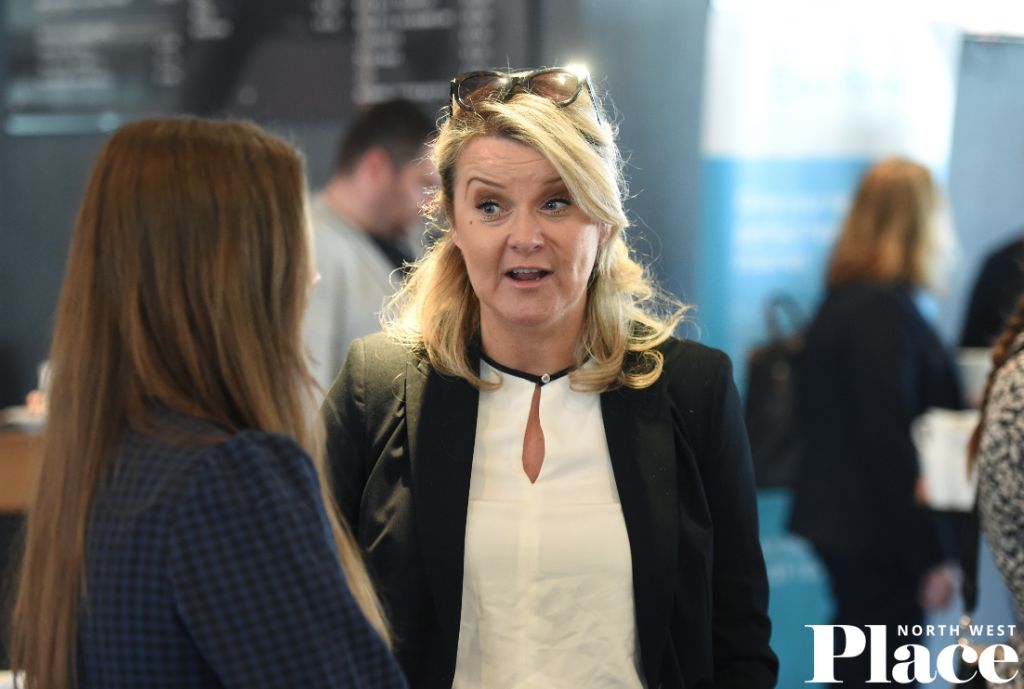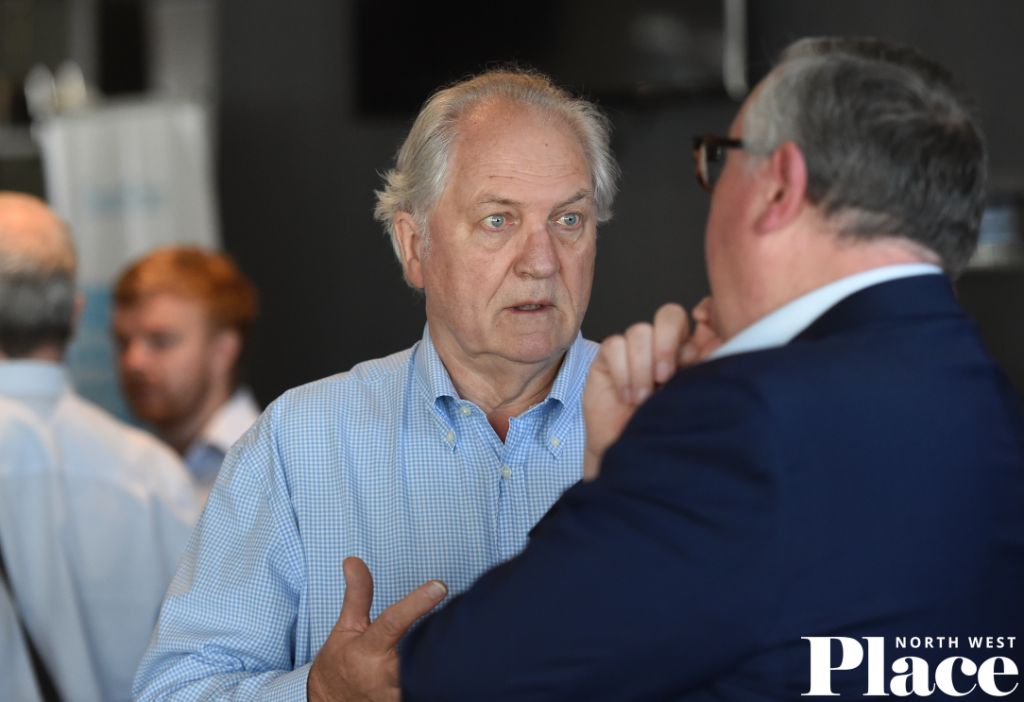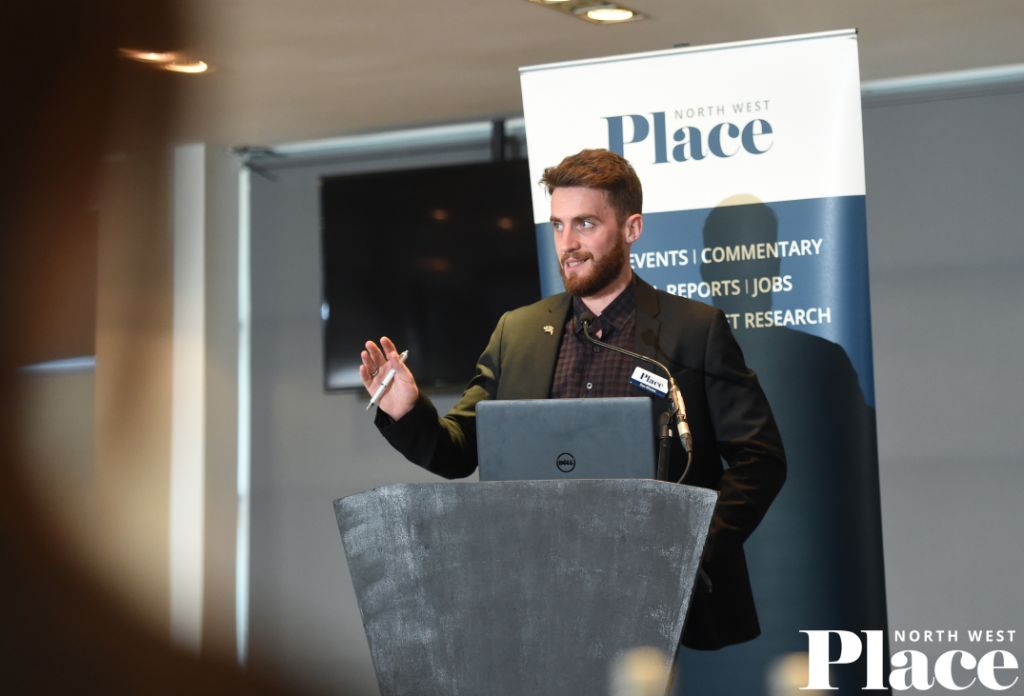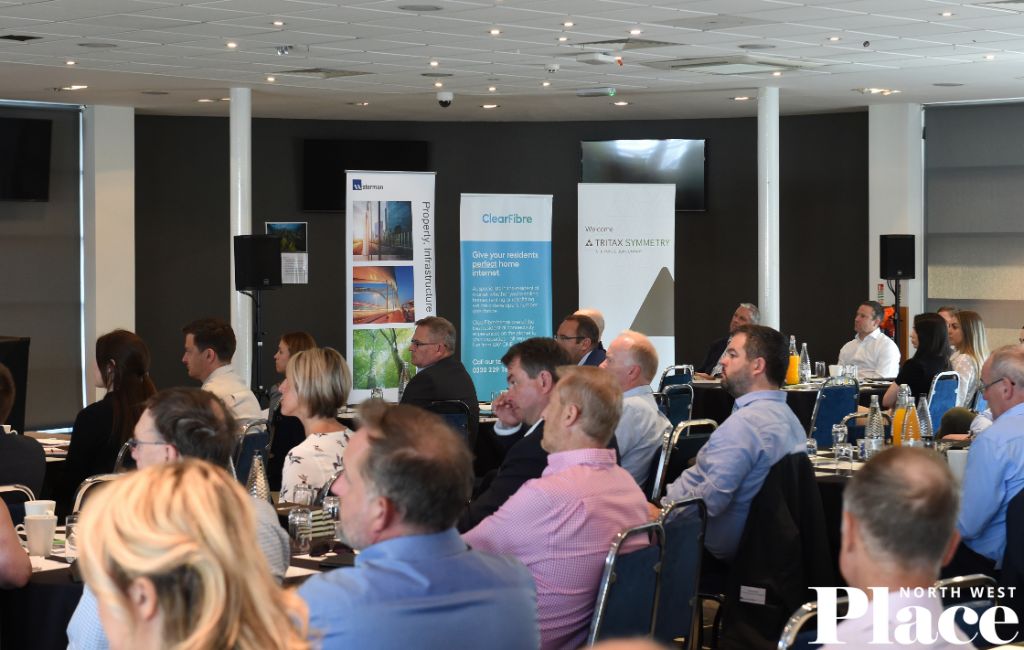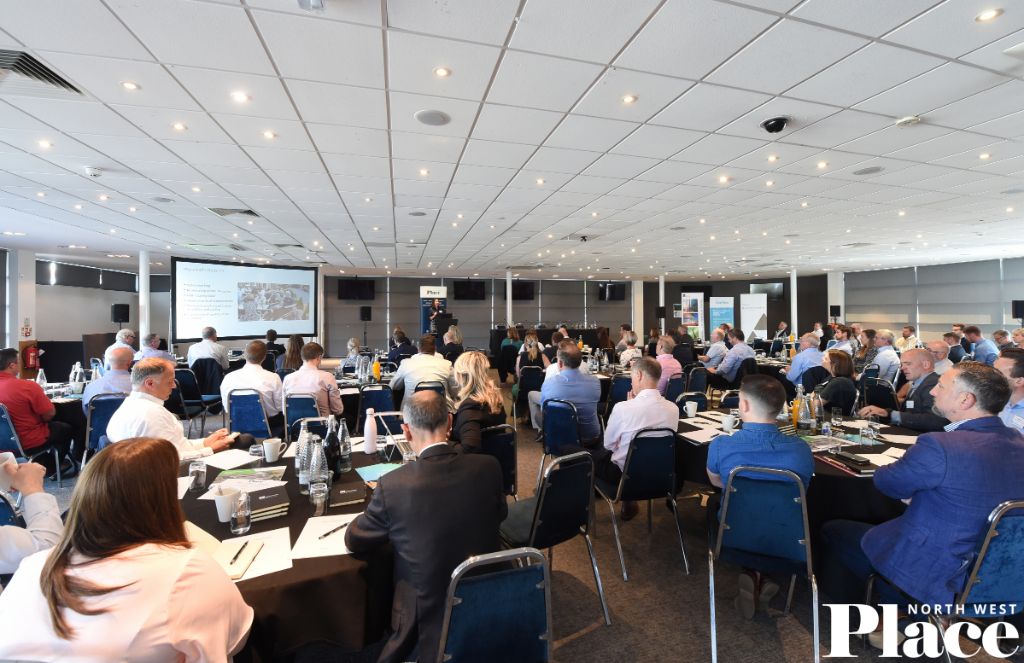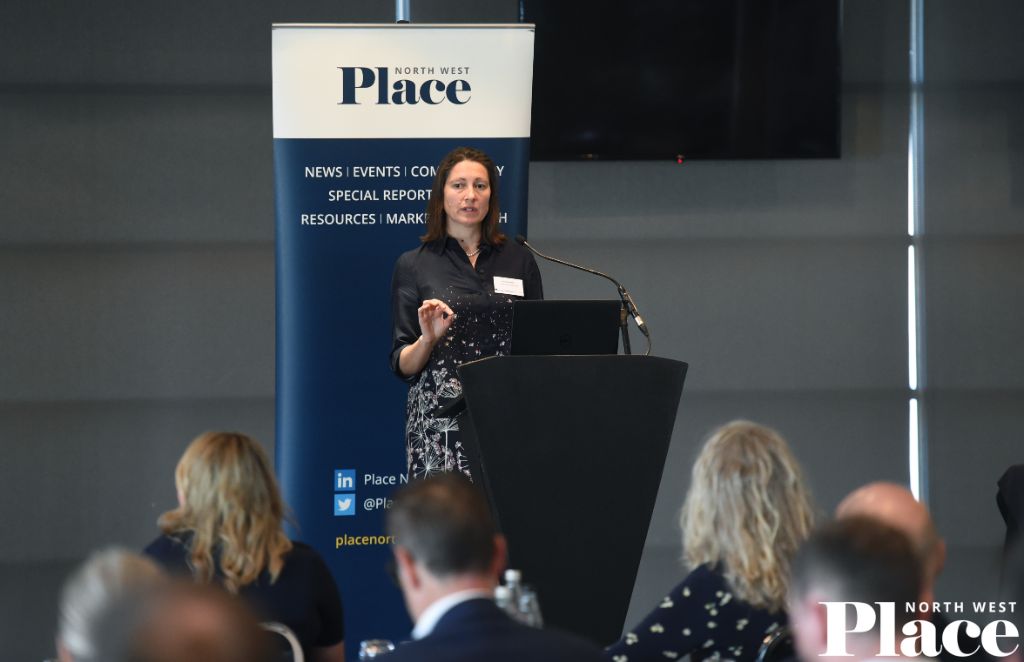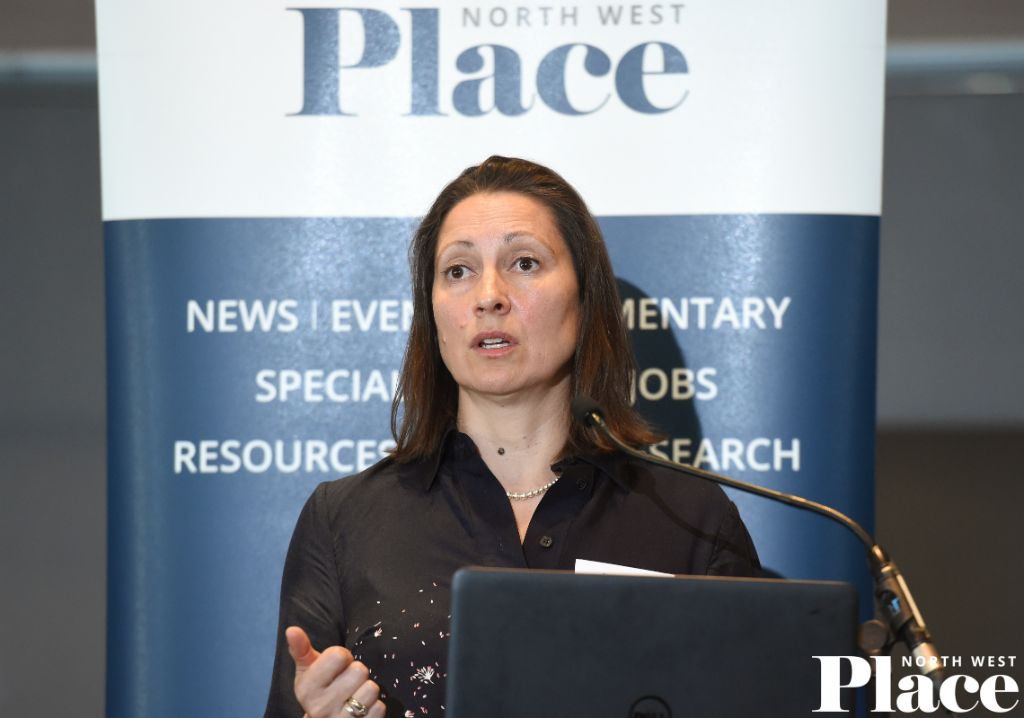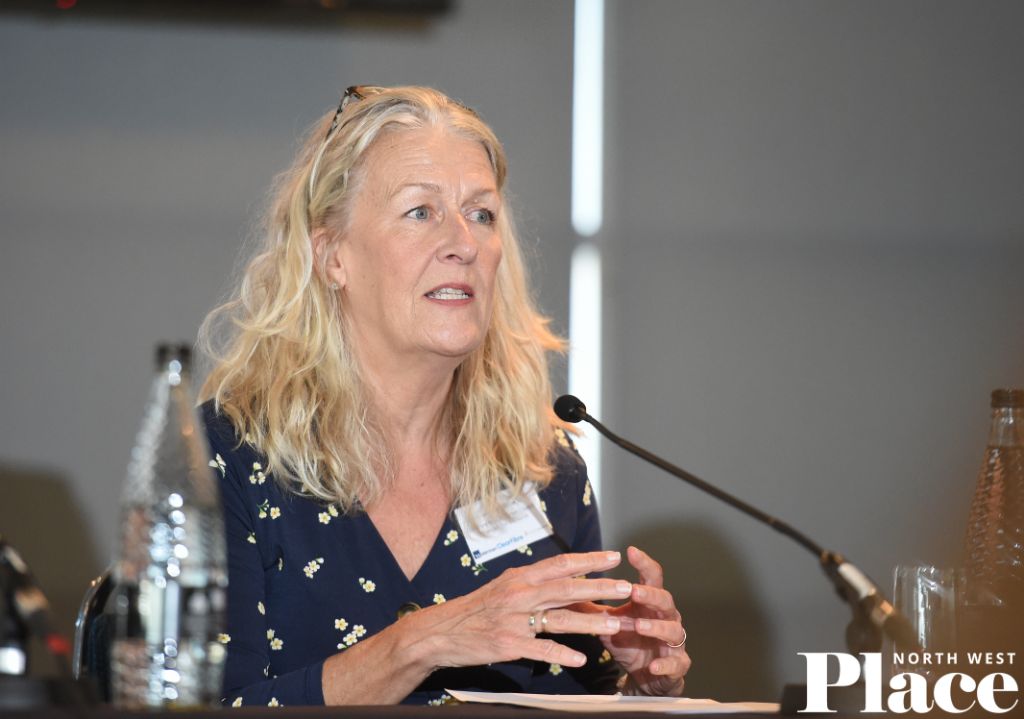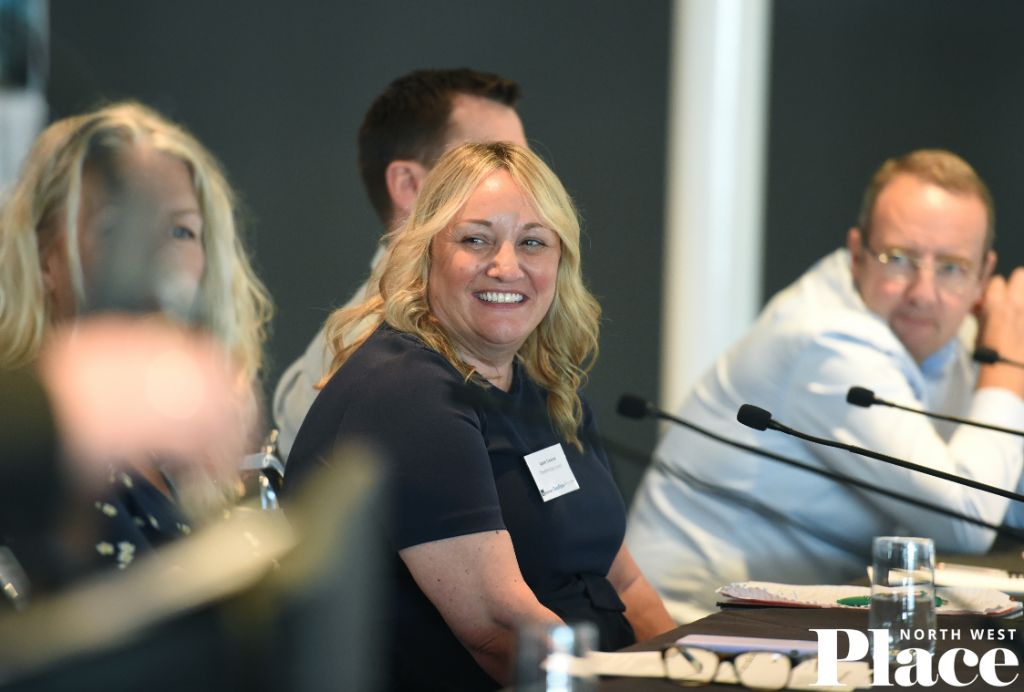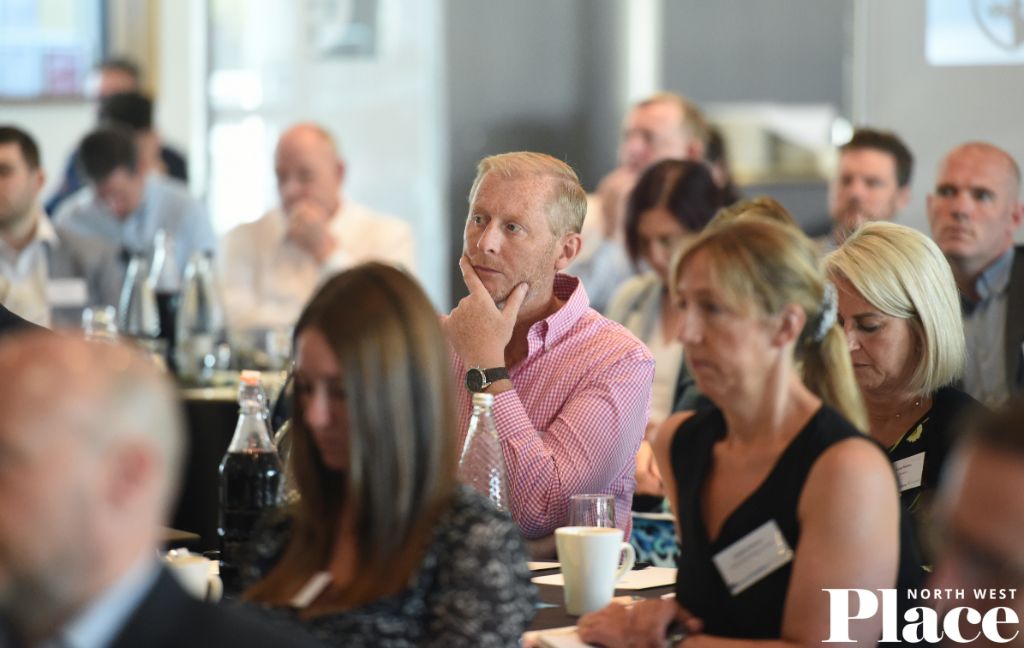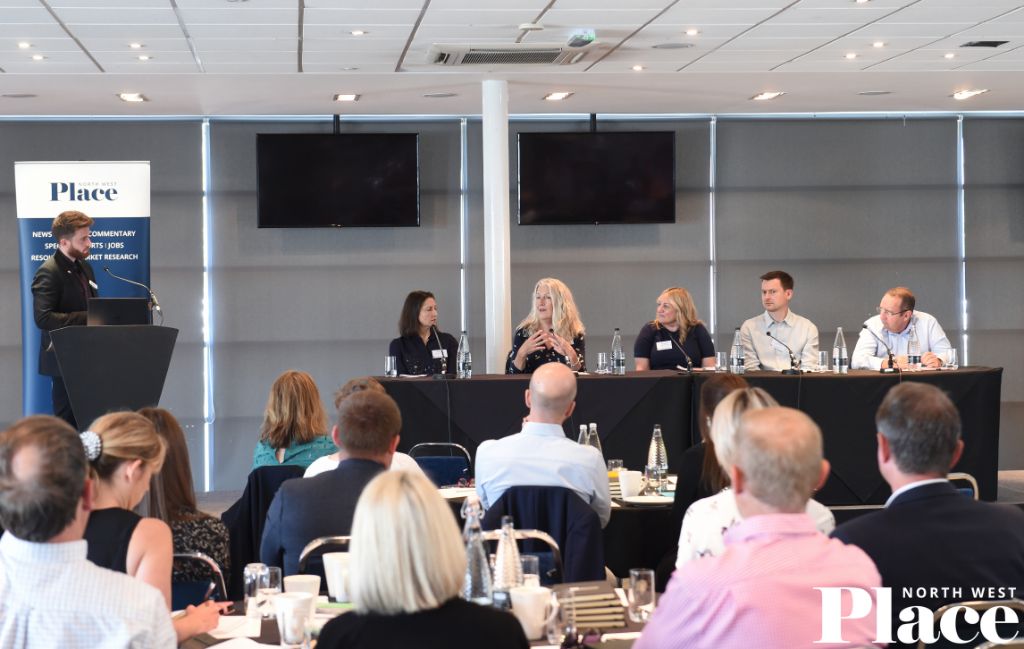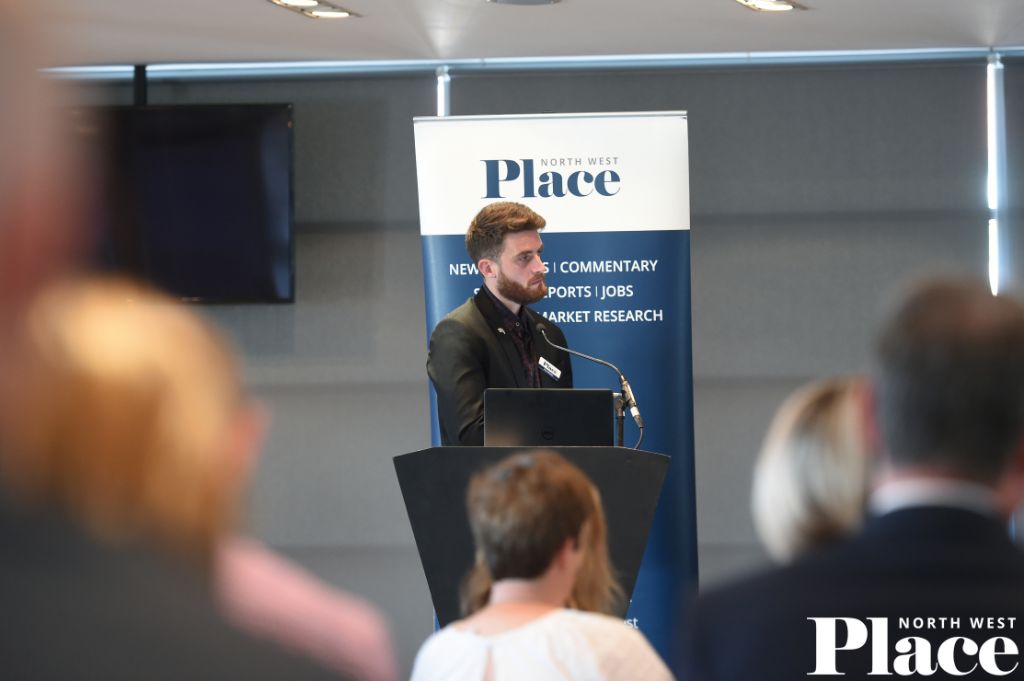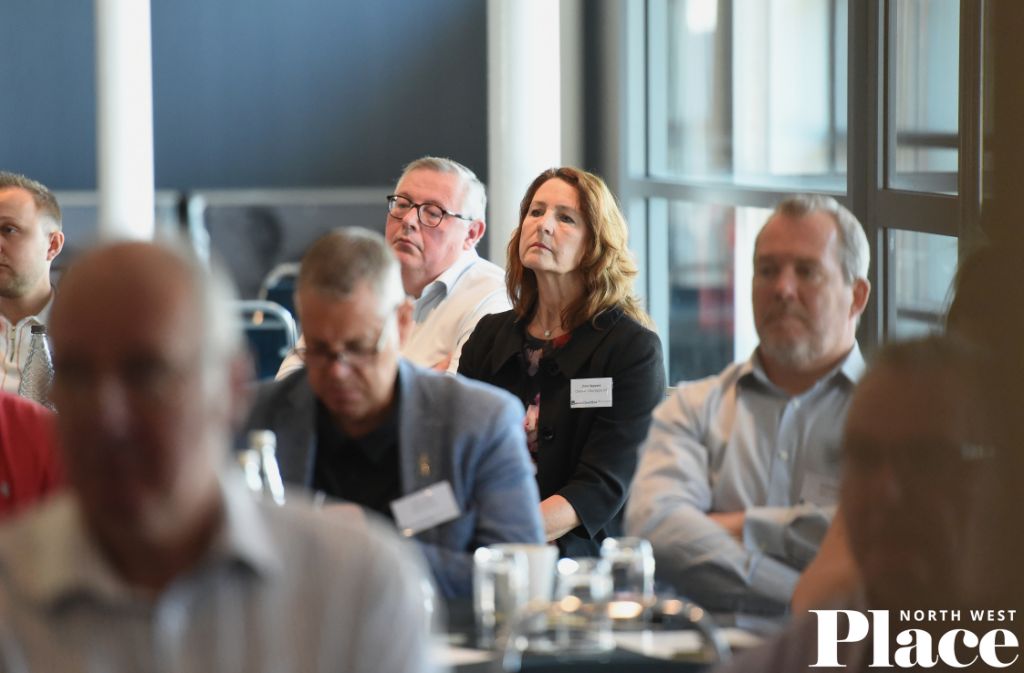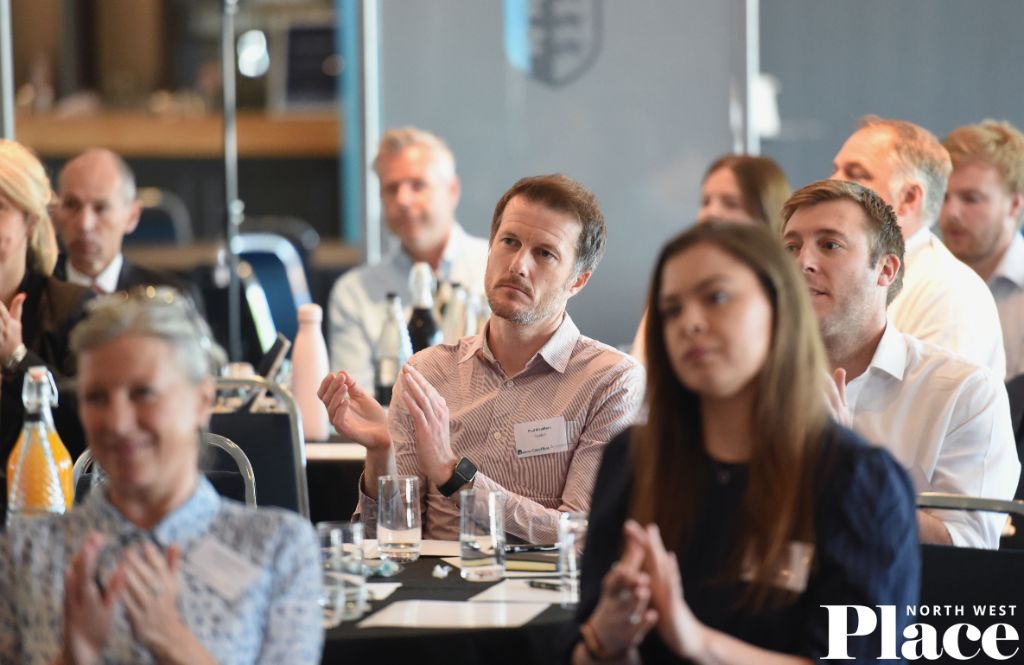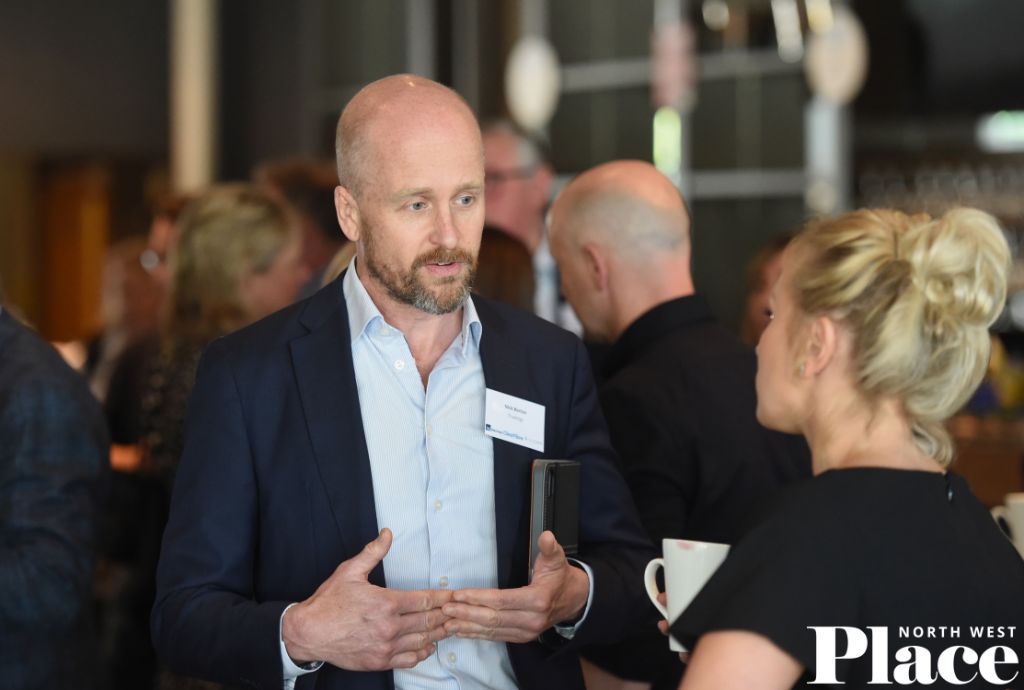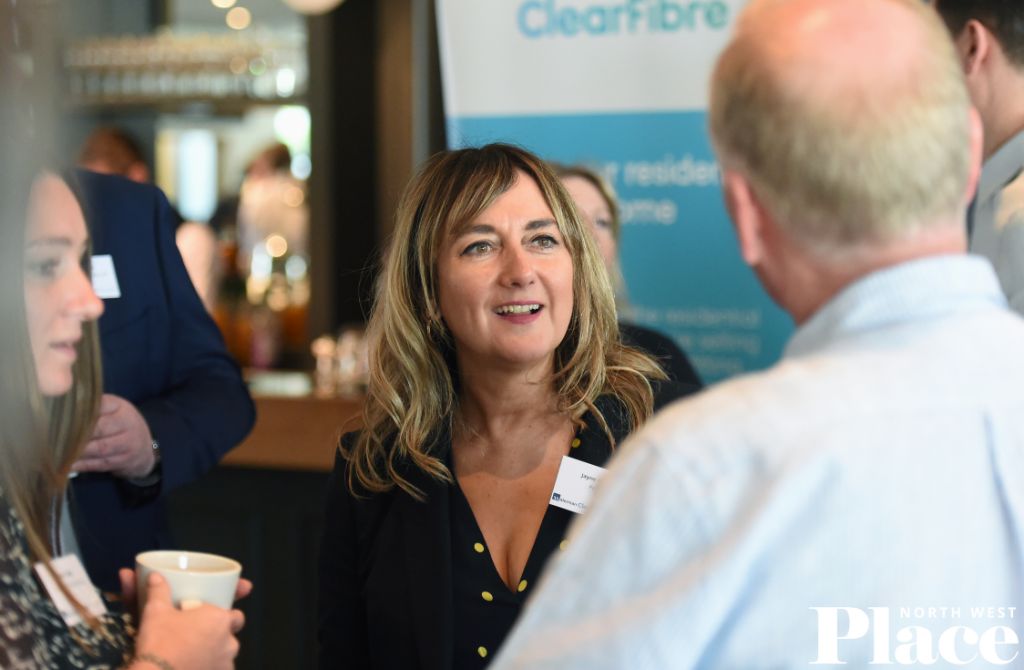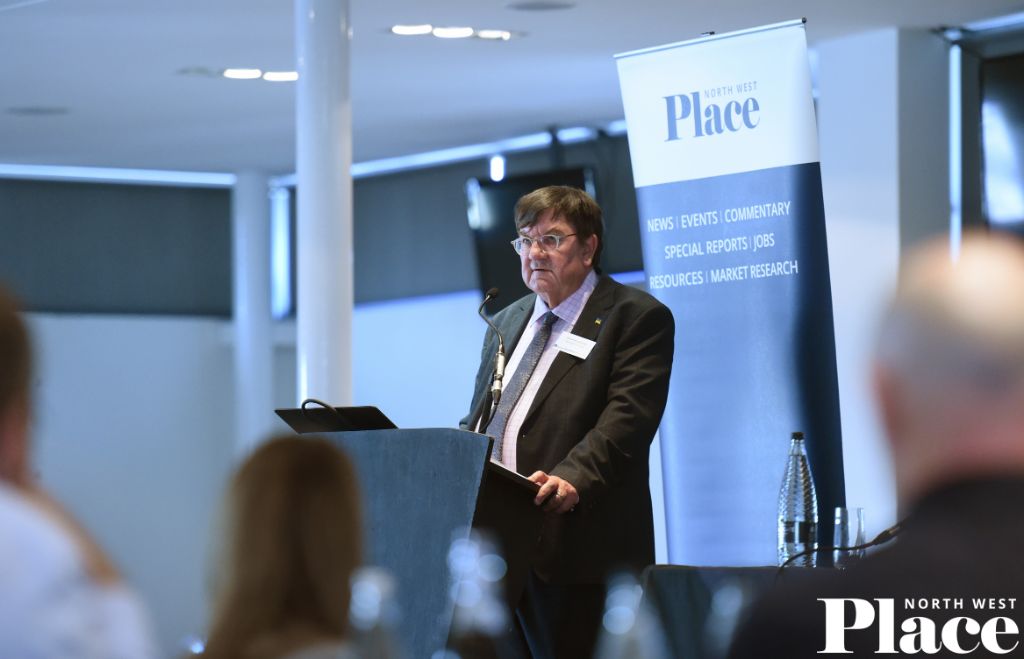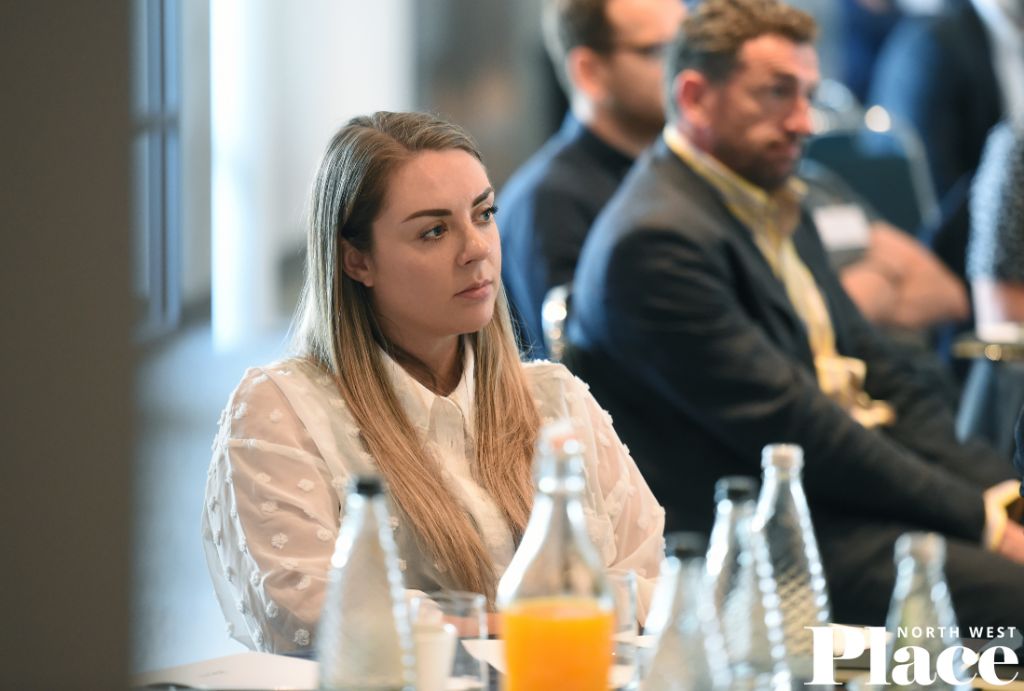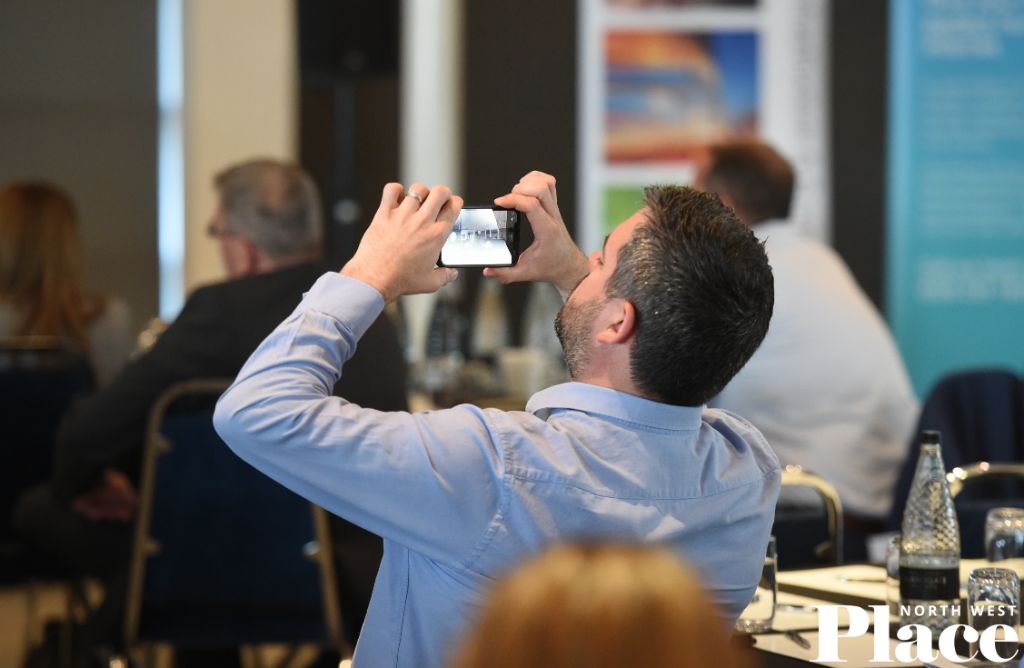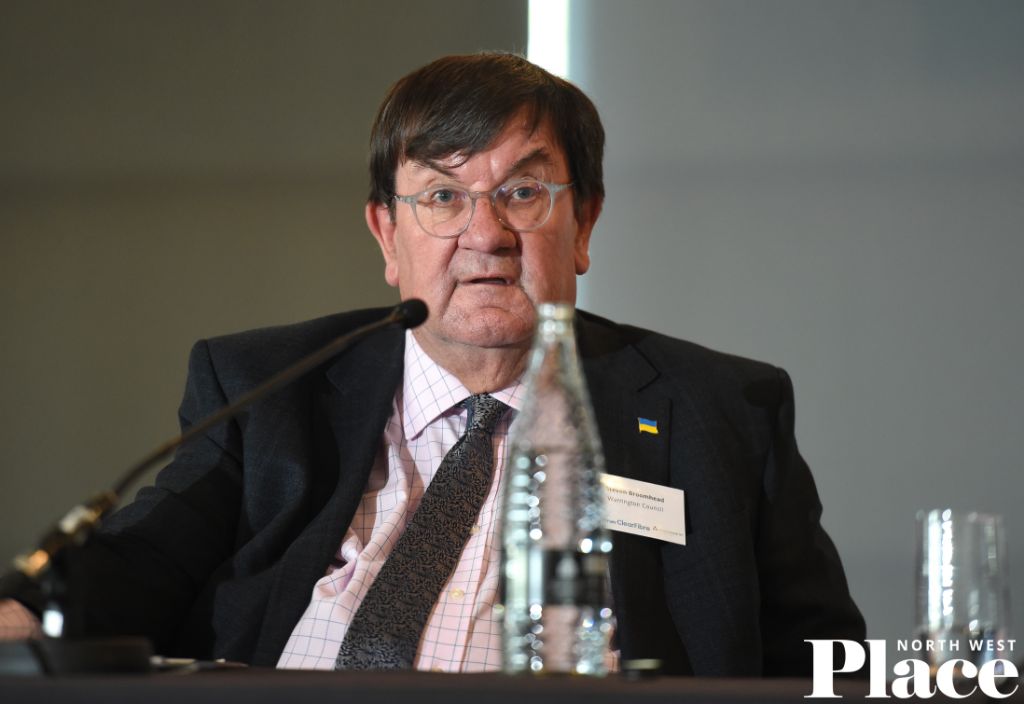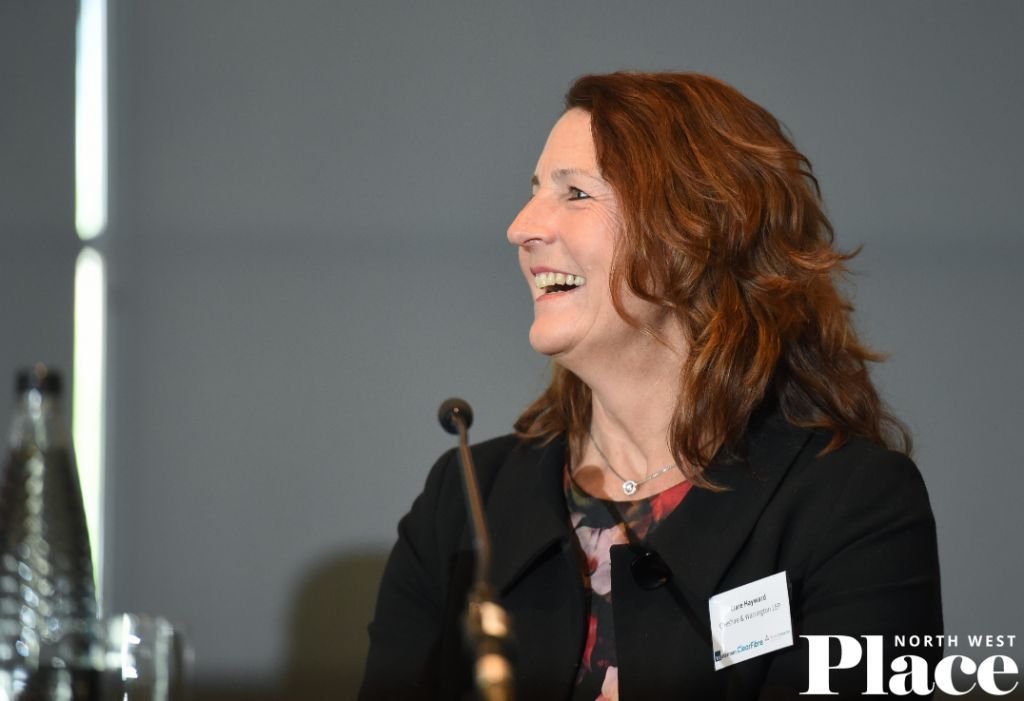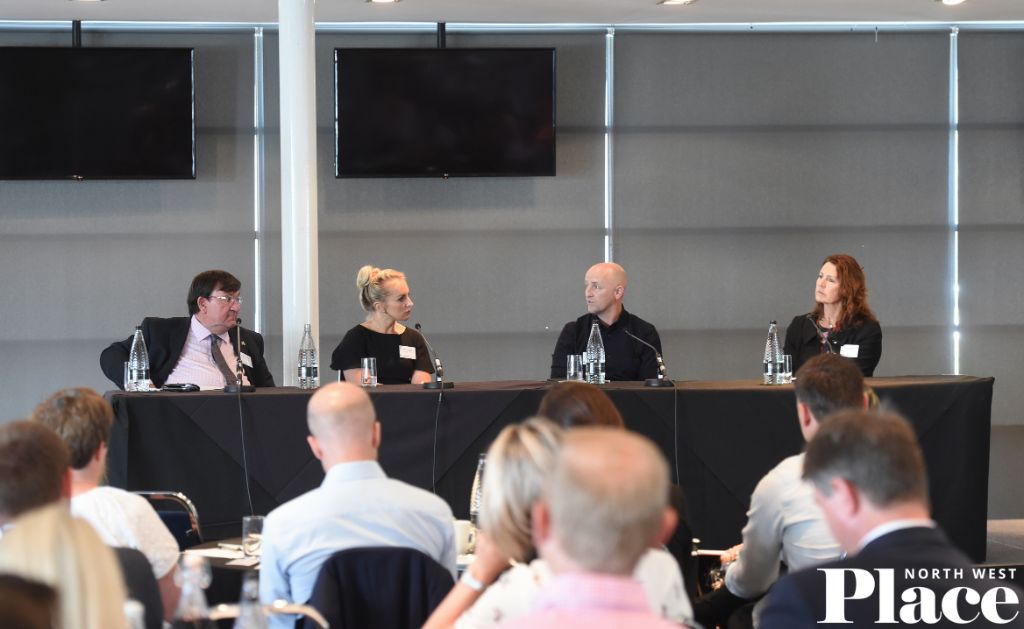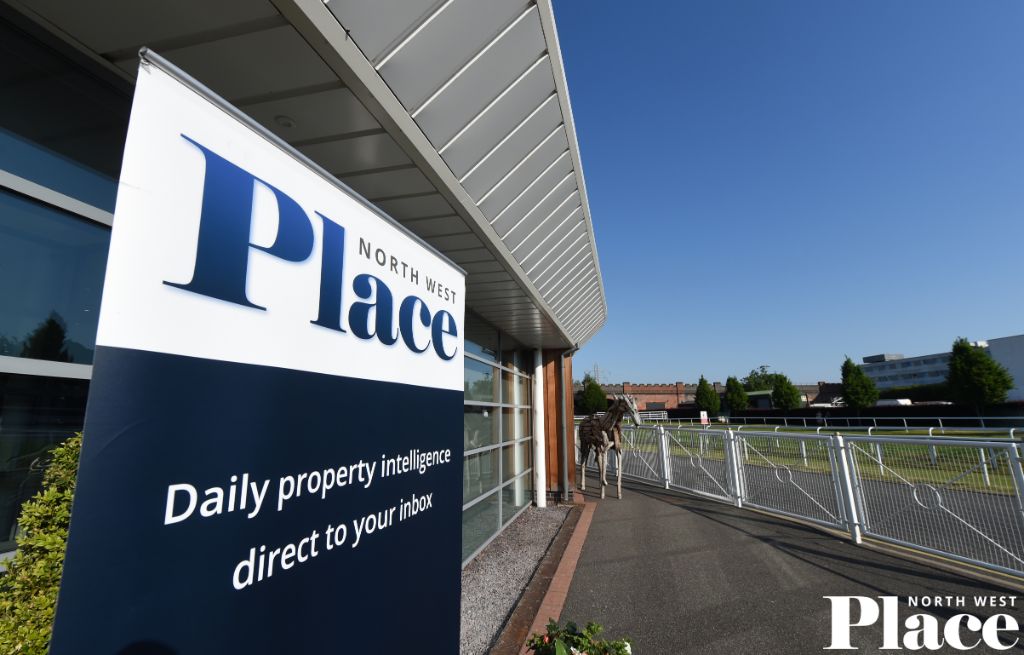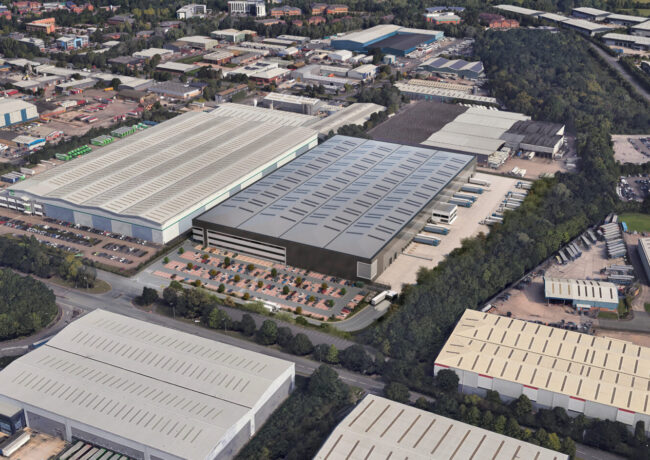Event Summary
Cheshire Development Update l Photos and Summary
Updating the region on the most recent developments within Cheshire’s property and investment industries was the focus of Place North West’s latest conference.
Sponsored by Waterman Group, ClearFibre and Tritax Symmetry, the event took place at Chester Racecourse. The Cheshire Development Update was chaired by Dan Whelan, senior reporter at Place North West.
Here is an overview of the major topics of discussion.
Scroll down to see photos from the event.
Investment and opportunities in Cheshire
Caroline Baker, managing partner of Cushman & Wakefield, said Cheshire has undergone a major transformation.
She cited Crewe, Macclesfield, Northwich, Winsford, Ellesmere Port and Chester as towns that have had lifestyle improvements.
Baker singled out Northgate in Chester as it is the biggest investment made in the area for 40 years, at £45m. She hopes it will drive town centre investments through the leisure sector.
According to Baker, the importance of councils and businesses working together cannot be understated.
“Where they can work together, and engage with local companies, it makes a massive difference,” she said.
“It will allow for companies to work on their local ESG responsibilities, co-sell what is happening in other towns and encourage more visitors to return and means we can harness the power of those important community groups,” she continued.
She claimed that there had been some positives to take from the pandemic, including hybrid working as it results in more time spent in the town centres. Baker thinks we should embrace the good habits we began during lockdown, such as walking and cycling and supporting the local economy.
Transport connectivity is key
Louise Gittins, leader at Cheshire West and Chester Council and interim chair of Transport for the North, feels that cross-border connectivity is crucial to ensuring towns do not feel disconnected. She was sceptical of the government’s commitment to the HS2 plans.
“If we really want to level up, we need to look at our transport,” she said. “We must free up our railways. We’ve still got Victorian lines on the mid-Cheshire line, and everything is really congested. We need new ones to encourage people to get out their cars.”
These thoughts were echoed by Jayne Traverse, executive director of place at Cheshire East Council, who feels that transport connectivity is key to getting people to take up the opportunities available.
She also feels that Cheshire’s heritage cannot be ignored, while development is essential.
“We have to guard our heritage,” she said. “We can reuse, revitalise and retain the historical element while still making it sustainable.”
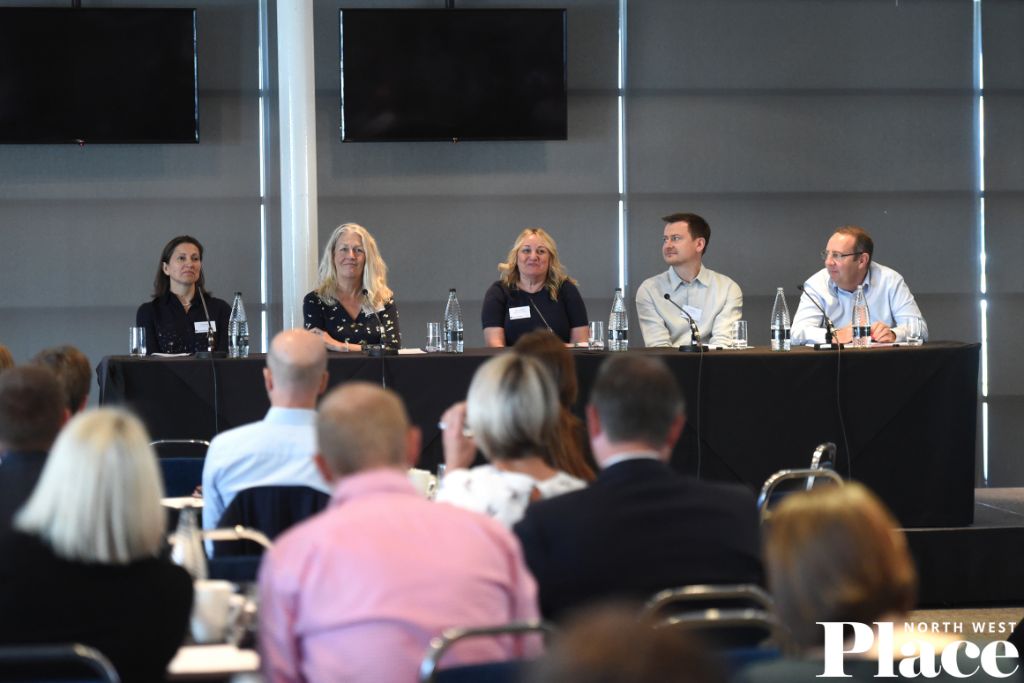
The morning’s first panel: Cushman & Wakefield’s Caroline Baker, CWAC Council’s Louise Gittins, Cheshire East Council’s Jayne Traverse, Bruntwood SciTech’s Sam Darby, and Redrow Homes’s Kevin Parker. Credit: PNW
Placemaking and providing quality of life and work
The opportunities provided in working environments are crucial to placemaking, and can have a major impact on how we view the places we live in. Sam Darby, head of development at Bruntwood SciTech, advocated raising the profile of towns by improving the quality of space and range of services available.
“New space invites people to come together, and if the whole space is flooded with Wi-Fi, you’re not stuck in the office and can break out,” he said.
Providing a good quality of life has been a big factor in placemaking, with the potential to provide more green space and improved transport, particularly encouraging for the new generation, while connecting the people by showing they are being listened to.
“Cheshire has a range of cutting-edge businesses for people to get involved in,” said Cushman & Wakefield’s Baker. “We need to make sure we have the opportunities for young people to take part in these employment opportunities.”
Sustainable business development in Cheshire
One focus that kept coming up on the panel was the commitment to sustainability within businesses in Cheshire.
Kevin Parker, group masterplanning director at Redrow Homes, said this should continue to be crucial in any decisions companies make when it comes to developments.
“We have big biodiversity net gain commitments,” he said. “Every single site we look at, we consider the biodiversity and make a decision based on that.”
Parker considers garden villages to be a great way to encourage a sustainable work and life balance. An example is Kingsmead near Northwich, which has 2,000 homes based on a garden village model and has existed for more than 20 years.
Finding a balance between needing more housing and producing it in a sustainable manner is vital, and it concerns Parker that some people think that the number of houses is the most important element.
“There’s a balance to find between good quality of life versus housing, and balancing that top-down, bottom-up scenario,” Parker said.
Warrington Council property investment strategy
Steven Broomhead, chief executive at Warrington Council, said that his council takes a holistic approach to property investment. There are four key principles: decisive leadership, a can-do attitude, honesty and economic awareness.
“Warrington is a success economically,” Broomhead said. “Success leads to further success, and this helps to create a reputation.”
According to Broomhead, Warrington is currently the market leader in development, with leisure facilities increasing including hotels and cinemas.
The council’s property investment strategy came about after the authorities needed funding to deal with austerity and help frontline services. With investments including three solar farms that have powered Warrington for 18 months and saved £4m, Broomhead considers the strategy to have been a major success so far.
This means Warrington Council has been able to invest in other areas of society and provide financial support to local businesses.
“For me, it’s [a successful council] all about leadership, delivery, and partnership,” Broomhead concluded.
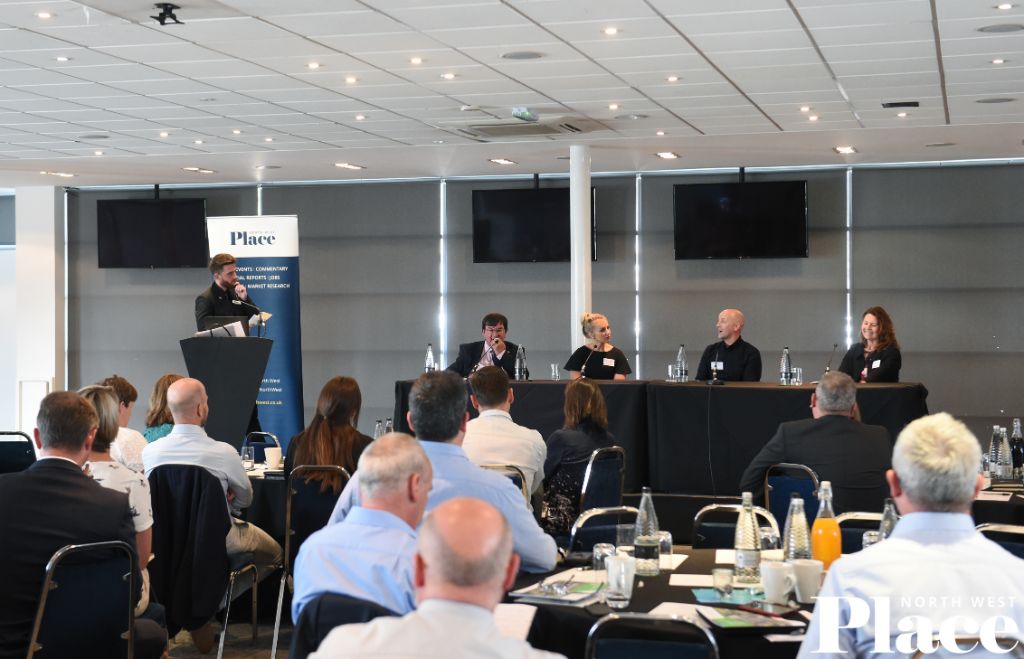
The second panel: Warrington Council’s Steve Broomhead, Ainscough Strategic Land’s Rachael Ainscough, Altered/Space’s Michael Brown, and Cheshire & Warrington LEP’s Clare Hayward. Credit: PNW
Working in partnerships with businesses for communities
The success of council strategy often relies on the partnerships formed with businesses.
One of the most common ways this is done is through Local Enterprise Partnerships. Clare Hayward, chair of Cheshire & Warrington LEP, said it is critical to have the right local and national partners, ones who will take risks and make sure everyone is considered.
“Sustainability, inclusivity and health are all important,” she said. “As businesses, we can all do really well, but we can make sure we are doing the right thing.”
Having a positive relationship with the council is key to successful placemaking. Businesses appreciate clear principles and plans, believes Michael Brown, director of Altered/Space, in order to deal with increasing high-density residential demand caused by better employment opportunities in the area.
Altered/Space is working alongside Warrington Council’s development arm Warrington & Co. on providing 900 homes across the city as part of a £99m town centre masterplan, which is set to go before the planning committee later this summer. The project has a gross development value of £150m.
As part of the scheme, the homes will be delivered in a phased manner so that the market is not overloaded at any given time.
That phased approach is a result of the conversations Altered/Space is having with Warrington Council. The ability to collaborate and discuss issues helped the joint venture partners handle how to deliver quality public realm and other amenities on a budget that is not necessarily as flexible as one may want it to be.
“There’s a cost on one side of the appraisal and not necessarily a credit on the other,” Brown said.
Working closely with the organisation has ultimately benefited the project, Brown added.
“Fundamentally, I think we’ve got a better scheme coming out of it.”
Levelling up could be a successful investment
The government’s levelling up policy was a hot topic for the panel. While some were sceptical of the plans, others could see the positives.
Warrington Council’s Broomhead determined this was the government’s way of hiding failures.
“Levelling up is doomed to succeed,” he said. “There are elements that will encourage local growth and be positive, but the problem is this mish-mash of different policies. It is too much, with some criteria not agreed. The government don’t understand how local growth works.”
Rachael Ainscough, chief executive of Ainscough Strategic Land, felt that some elements of the government’s levelling up policy were positive, but had concerns about how achievable the proposals would be.
She cited land value increases and how that could be problematic for the next stages in solving the housing crisis.
“Housebuilders are paying way over the odds. This is making it much harder for us to do deals,” she said. “[The current situation] feels like it is not sustainable at the moment.”
Engaging with the whole community
The best way to ensure people are being provided with what they need is to get them involved.
Brown feels that seeking advice from younger communities will massively benefit the future environment.
Finding the right way to communicate with and consult residents is key to making them feel connected, argued Ainscough, and needs to feel like we care about them.
“We have found that taking things online has helped getting more young people [involved],” she said. “I think we need a bit of both practical consultation and tick box, because it is the young people who are struggling to be heard, and it’s important to listen to everyone.”
The next Place North West event is Meet the Authorities: Public-Private Partnerships, held tomorrow at the Science and Industry Museum in Manchester. Tickets for this in-person event are currently available.
- Place North West's Cheshire Development Update was sponsored by Waterman Group, ClearFibre and Tritax Symmetry. Credit: PNW
- Credit: PNW


